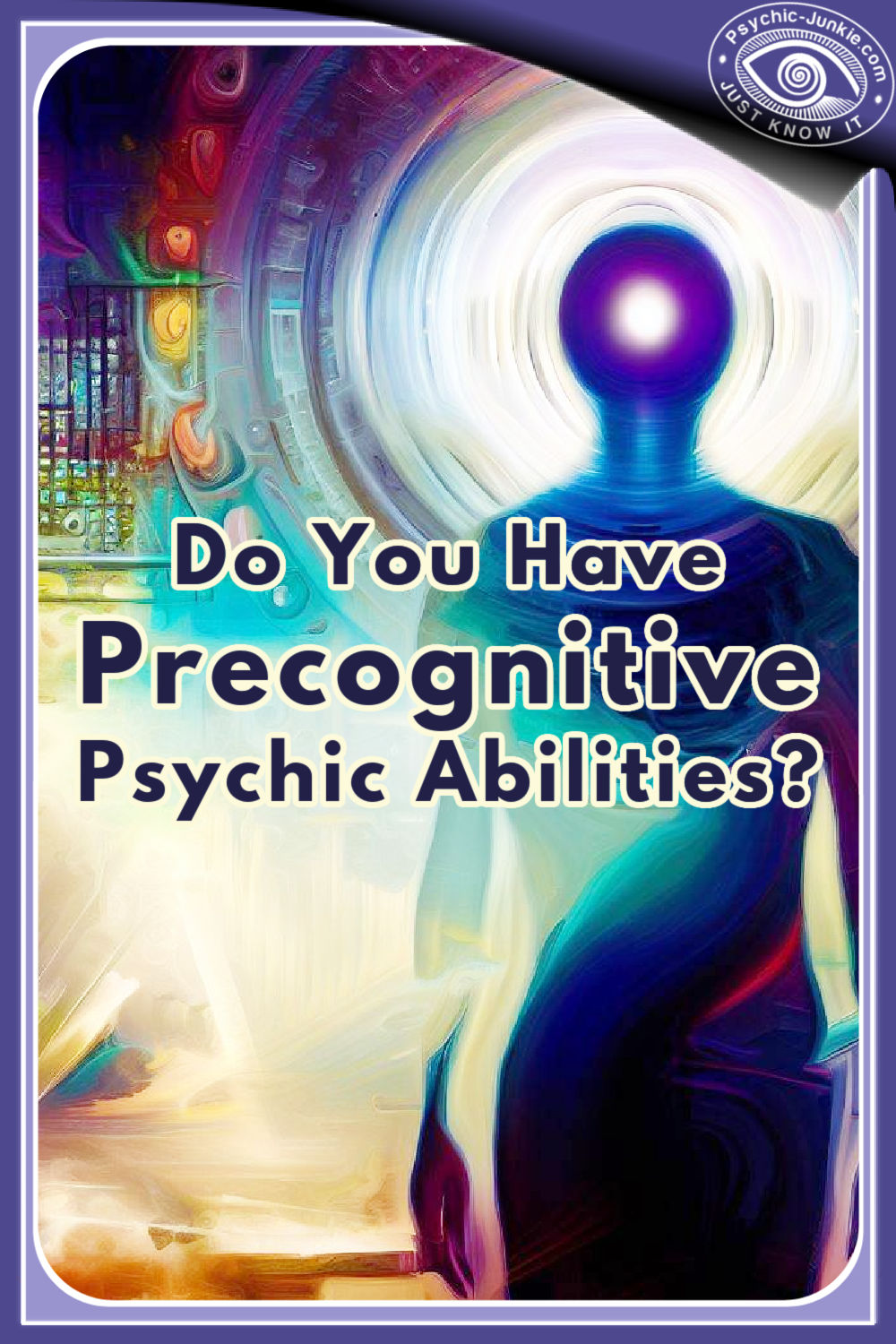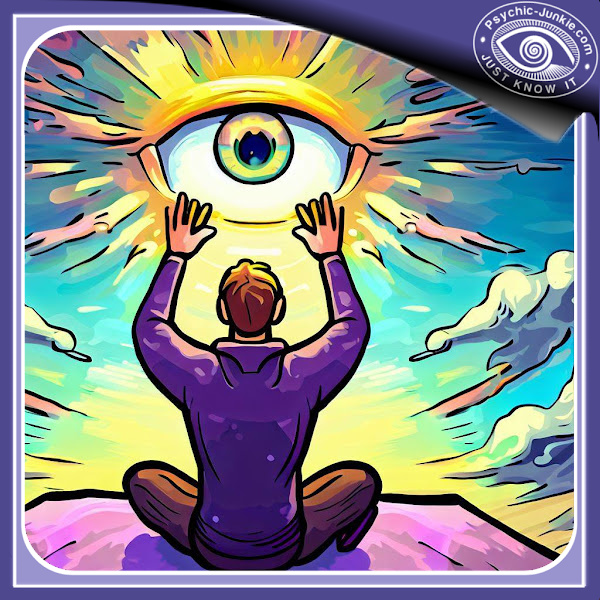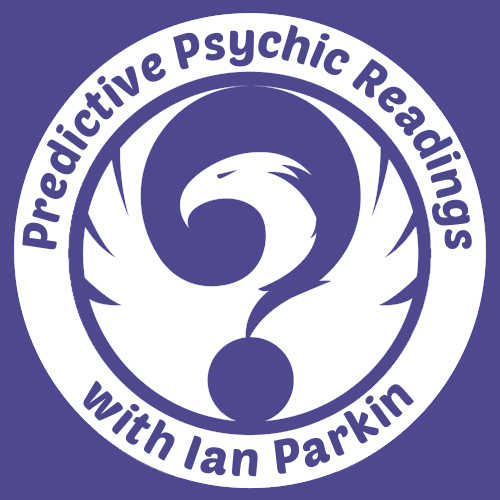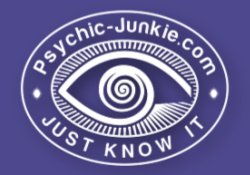- Home
- Complete List of Psychic Abilities
- What Is Precognition
Ian Parkin is the author of this post.
What is Precognition: How to Tell If You Have This Psychic Ability
Imagine this: It's a quiet Tuesday afternoon, the kind that feels like any other. Suddenly, a vision flashes in your mind. It's you, but it's not today's you. It's a future version of yourself, going about a day that hasn't happened yet. As strange as it sounds, it's a scenario that rings true for a surprising number of people. This is the heart of the question, "what is precognition?"
Precognition, or premonition, is the ability to predict or foresee future events before they happen. The term originates from the Latin words "prae," meaning "before," and "cognitio," meaning "getting to know." So, it's literally about "knowing beforehand." And believe me when I say, it's more than just a hunch or a gut feeling.
- The field of psychology acknowledges the existence of precognition.
- It's often a dream: Many people who've experienced precognition say it came to them in a dream. They've dubbed these visions "precognitive dreams."
- It's often a matter of interpreting symbols and vague impressions.
In the depths of dreams, and through the veil of night, lies a question whispered, soft as starlight's flight.
'What is precognition?', that voice does implore, unraveling the riddle of time's unwalked shore.
Precognition, a mystery, cloaked in dreams' attire, unseen impressions dancing on tomorrow's wire.
A whisper from the future, a murmur yet unheard, a secret message carried on the wings of a bird.
'What is precognition?' Oh, seeker of truth, tread light, it's a canvas of dreams in the painter's moonlit night.
A sonnet of the unseen, in life's grand recitation, a peek into tomorrow, a heart's silent narration.
So cast off your worries, for the future's yet to unfold, precognition is but a tale in the cosmos, yet untold.
Embrace the mystery, let your spirit take flight, in the dance of destiny, find your own starlight.
What is Precognition: A Guide to Recognizing Precognitive Abilities in Yourself
In the realm of supernatural phenomena, precognition holds a singular position, both fascinating and puzzling, evoking images of clairvoyants predicting future events or fortune tellers gazing into their crystal balls. But is there more to precognition than just mysticism and folklore?
Precognition, derived from Latin words meaning "prior to" and "getting knowledge," refers to the perceived ability to predict future events before they happen. It's an age-old concept steeped in history and folklore, embraced by some, and viewed skeptically by others.
The Scientific Perspective
Within the scientific community, precognition has long been a controversial subject. Precognition falls under parapsychology, a field that studies phenomena like telepathy, clairvoyance, and reincarnation - phenomena that mainstream science still struggles to explain fully. However, some researchers have conducted experiments that suggest precognition does exist. A notable instance is Daryl Bem's controversial 'Feeling the Future' study. Bem, a social psychologist, found statistical evidence for precognition through nine experiments using established psychological methods.
In 2010 the Journal of Personality and Social Psychology published the accumulated evidence of Daryl Bem's ten year study into the possibility of precognitive effects that provided direct proof of precognition and extrasensory perception.
In 2012 the Journal of Scientific Exploration published Remote Viewing the Future with a Tasking Temporal Outbounder. This was a study carried out in controlled laboratory conditions as a novel experiment with sound methodology in the reliability of precognitive effects directed towards a near future time frame.
Precognition research has continued in recent years with presentiment experiments. An EEG presentiment experiment involves testing the small effect in emotional reactions to stimuli based on something that has not yet happened. Also under investigation are experiments, in real-world settings for precognition, such as highs and lows in the stock market and the outcome of a roulette spin as well as recent replications of earlier studies. I'm sure future research designs will build on past experience and bring forward even more evidence for the sceptical community at large.
Since 1973, the Institute of Noetic Sciences (IONS) has been at the forefront of the scientific investigation of consciousness and its role in our lives and the physical world. Through intensive research and groundbreaking experimentation, IONS explore the interconnection between personal, inner space and the “outer space” of our shared reality.
Types Of Precognition And The Signs To Look For
Precognition can manifest in several ways, from spontaneous occurrences to induced states. Common types include:
- Spontaneous Precognition: This typically happens without conscious control, often in dreams or random thoughts. These could be flashes of insight or vivid dreams that later match real events.
- Induced Precognition: This occurs during specific states of consciousness, often reached through meditation, hypnosis, or other focused practices. People in these states might report having visions or insights about the future.
Recognizing precognition can be tricky. Some signs might include frequent instances of déjà vu, intense feelings of familiarity with new places or people, or dreams that seem to predict real-life events.
How To Learn Precognition
As with developing all psychic experiences you can learn precognitive skills too. In the early stages hindsight will reveal your best foresight. So keep a diary and write down the hunches you have from day to day. Also note all those dreams where you wake and just know there was a meaning there somewhere but may not yet know for sure. Make special mention to any key feelings you have during these body experiences. Then, as time goes by, events will reveal which of your suspected precognitive thoughts and dreams where true insight. As you refer back to your diary or journal you can recall those key feelings. Before long you will just know what is precognition and what is not because those feelings will be unique.
- Awareness: Cultivate an awareness of your thoughts, dreams, and intuitions. This might include keeping a dream journal or practicing mindfulness.
- Recognition: Learn to distinguish between ordinary dreams or thoughts and potential precognitive experiences. Look for patterns, repeated symbols, or sensations.
- Development: Engage in practices like meditation, guided visualization, or hypnosis, which can foster a more profound connection with your subconscious mind.
- Validation: Keep track of your potential precognitive experiences and validate them against real events.
Precognitive Dreams
Precognitive dreams, or dreaming about events before they happen, is perhaps the most common form of precognition. Here are three real-life precognitive dream stories:
1. The Titanic Sinking
In 1912, a woman named Jessie Sayre gave an account of a disturbing dream in which she saw a large ship sinking after hitting an iceberg. She was shocked to discover, a few days later, news of the Titanic disaster, mirroring her dream.
2. The Aberfan Disaster
Ten-year-old Eryl Mai Jones reported to her mother a dream about a schoolhouse being buried with something black. Sadly, a few days later, the disaster occurred, where a British colliery spoil tip in Aberfan collapsed, engulfing a school and killing 116 children and 28 adults, including Eryl Mai.
3. The 9/11 Attacks
David Mandell reported a dream about two large silver birds crashing into two gigantic statues. He woke up startled, with a sense of impending doom. The dream eerily mirrored the events of the 9/11 attacks that unfolded later.
Other anecdotal accounts
- For 10 consecutive nights before he was assassinated, Abraham Lincoln had precognitive dreams about a funeral service being held in the White House. When he peered into the coffin, it contained his dead body;
- Sir Winston Churchill credits a life saving moment to an earlier dream he had taken notice of. He changed sides from his habitual left side car seating position, on a car journey the next day that was hit on the left by a bomb's explosion.
Precognitive insights usually comes when we are in the dream state and premonitions can take place anytime, day or night. Both involve little things like heightened emotions and/or feelings, such as excitement, anticipation, anxiety, fear or as feelings of doom and gloom that keep nagging at your consciousness.
Not all dreams are precognitive, but if you should have one, it may be your sixth sense delivering a warning or a positive prediction of meaningful events in the future. In the case of the prominence of the event being a warning and you are an adept precog there is a good chance you can change the outcome.
Precognitive dreams are often symbolic and may not be understood the first time until the after event happens. But, there are literal precognitive dreams where the dreamer can see what is about to happen in vivid detail as if they were participating in the event.
Another identifier of precognitive dreams is that the events aren’t controllable by the dreamer (as is the case in a lucid dream). But, if they are interpreted correctly and proper precautions are put in place, it is possible to change the future outcome of some negative premonitions.
Therefore, psychics might consider precognition a blessing, liberally laced with curses. They know what will happen and in some cases, they warn the client, in order to circumvent some disaster. It can be painful for a psychic to foresee traumatic events, without being able to help the client.
Have Your Say About "What Is Precognition?"
If you would like to ask questions, add answers, or comment on this page please use my contact form. Start the conversation with the heading About "What Is Precognition?"
Or if you're inspired to write an article on this subject please submit a guest post here.
What is precognition?
What is precognition?
- Precognition is happening when having telepathic thoughts and feelings that something positive or dreadful might occur at some unknown time in the future and you later realize you already knew it.
What is precognitive clairvoyance?
What is precognitive clairvoyance?
- Clairvoyant precognition (second sight) is an inner-visual awareness of possible future events that are yet to happen. For instance, you may experience future sight of forthcoming events while you are in a dreaming state, or clairvoyant visions of the future during meditation or via flashes of relaxed clarity.
How common is precognition?
How common is precognition?
- Precognition, the extrasensory perception of the future, is very common, but what is not at all common is the recognition that an experience is precognitive, so it goes past mostly unnoticed. Experimental evidence reveals the most common means of having these forms of extrasensory perception is in our dreams.
How can I tell if my dream was precognitive?
How can I tell if my dream was precognitive?
- Distinguishing between a regular dream and a precognitive one can be challenging. Precognitive dreams are often more vivid, emotionally intense, and tend to linger in memory compared to ordinary dreams. Keeping a dream journal can help track patterns over time, and any correspondence between dreams and real-life events can be noted.
Wiki - Precognition
Learn To Be A Psychic Medium
An Evidence-Based Path to Communicate With Loved Ones & Others in the Spirit World.
In this FREE hour with Suzanne Giesemann, you will: Gain an understanding of “evidential” mediumship and why it’s so sacred. Discover the 3 keys to mediumship: Belief in the Spirit World, alignment, and a shift in focus from the physical to the Spirit World. Learn how you can begin communicating with your loved ones who have passed. Find mediumship can be a path for your soul’s evolution. Hear about what makes a reading “evidence-based” - and how this form of mediumship raises the bar and meets the true goal of being an authentic and indisputable voice for Spirit. Experience a practice to connect with your guides and ask them for signs. Click here to learn more about this free event > >
Test Your Psychic Ability
The Lifeleap Institute’s Psychic Project is a unique online psychic development tool using real people and events as "psychic targets."
They start by asking you to focus on the "psychic targets" and answer a series of special questions about these targets.
They then reveal to you the actual psychic targets. You get to compare your results with the actual psychic targets. You also get to see the results of other participants.
Even if you think you have no psychic ability, this tool will offer proof that you do.
It's easy to participate and the Psychic Project is free!
Click Here To Test Your Psychic Ability
Develop Your Intuition And Become An Online Tarot Card Reader
You can learn how to become a professional online tarot card reader in 90 days or less with Tatiana Jones' bestselling course.
In this short course, Titania teaches everything you need to know to start an online tarot reading business - with zero experience required!
You do not need to be psychic to read tarot cards online! It is all about being intuitive and “connecting the dots”.
Tarot Reading Entrepreneurship
- Help People Find Meaning
- Work Remotely
- Set Your Own Hours
- Replace Your Full Time Income
- Work Just A Few Hours Per Day
- Home
- Complete List of Psychic Abilities
- What Is Precognition









